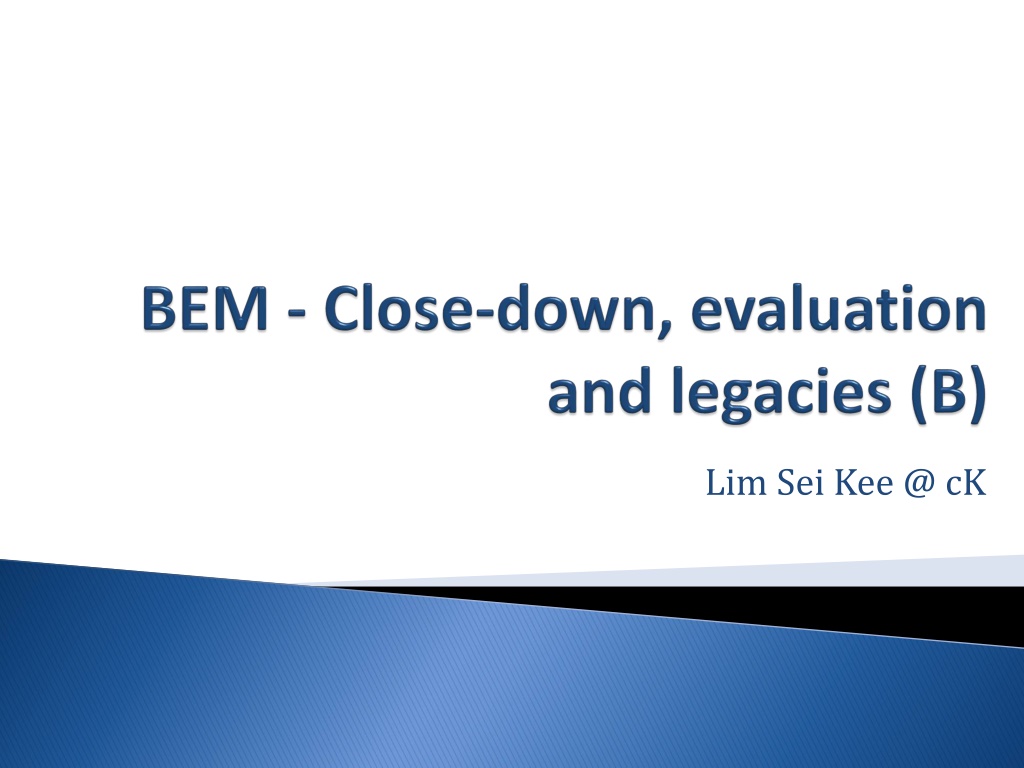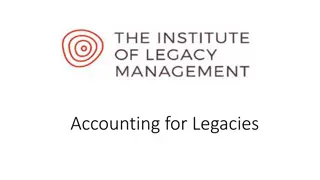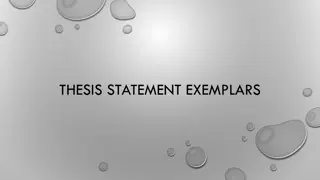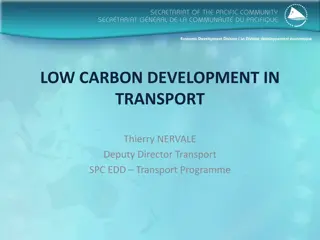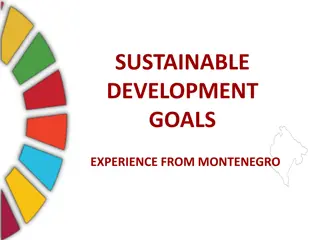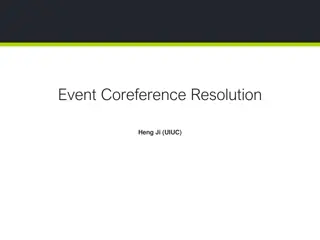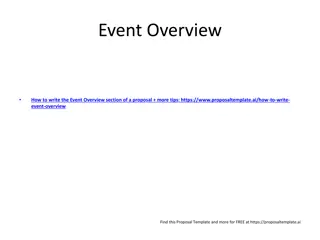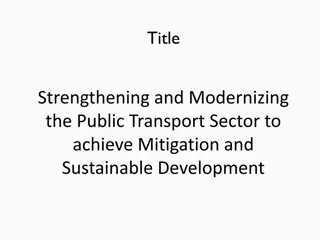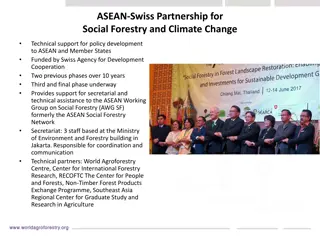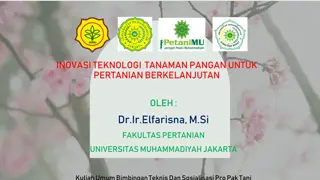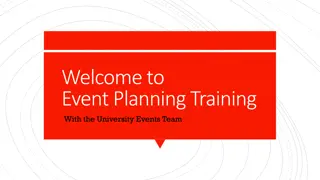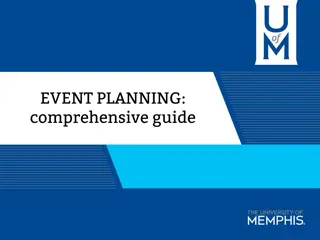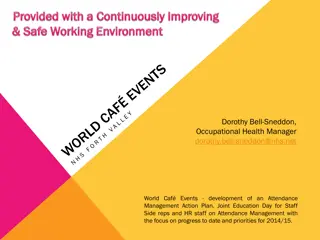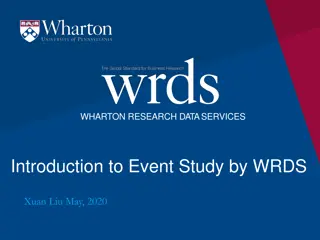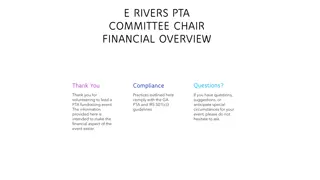Maximizing Event Legacies for Sustainable Development
Events leave legacies that can be personal memories, social connections, or tangible items. Proper planning for divestment and regeneration of event sites is crucial to ensure a positive impact on the host city and local community. Legacy planning aims to create lasting benefits such as infrastructure, skills development, and economic growth. Re-using event facilities for employment opportunities, green spaces, and housing contributes to a more inclusive and sustainable society. Legacy planning should begin early to maximize the benefits left behind for stakeholders.
Download Presentation

Please find below an Image/Link to download the presentation.
The content on the website is provided AS IS for your information and personal use only. It may not be sold, licensed, or shared on other websites without obtaining consent from the author. Download presentation by click this link. If you encounter any issues during the download, it is possible that the publisher has removed the file from their server.
E N D
Presentation Transcript
Events leave a legacy. This may be in personal memories or friendly social contacts made at the event, or it may even be items / merchandise. It may be transient or long-lasting. Either way, some thought should be given the setting of objectives at the beginning, to the legacy.
Divestment Dispossess of property Legacy Anything passed down from the past
Many events are repeat editions, others are not. Some events are designed for a single one- time-only purpose; some do not normally recur in the same place twice; some events leave only social legacies.
If the event has been a one-off, regeneration or re-use, the divestment needs to be planned. Handover: site must be given over in the condition that the original objectives intended, or that the plans specified. It will be essential to hand over not just the site, but also the knowledge that goes with it, about its nature, utilities, environment, problems and limitations.
Re-use sites to create employment and other positive development outcomes Retain part of the site as public open space parkland or nature reserve Create residential housing
Re-use varies according to what facilities were provided for the event. 2002 Commonwealth Games @ Manchester: primarily in sporting and leisure facilities.
Events of all sizes can leave a legacy. Legacy is that which is handed down from the past. Legacy planning takes place ahead to ensure that what is left is of benefit to the event s stakeholders especially the host city and local community.
An event legacy can be a more inclusive and sustainable society and economy. Lasting legacies may include physical infrastructure; enhanced capacity in the region. Enhanced capacity in the region can include new skills, new jobs, enhanced awareness, and new business opportunities.
The legacies of many kinds of events may not be conceived in physical terms. Leverage and legacy opportunities need to be planned rather than left to chance or assumed that they will automatically flow from the event itself. Creating a positive and lasting legacy requires deliberate effort, strong leadership, sustained commitment and attention.
A well structured and managed leverage and legacy plan is essential to ensuring event organizers, key partners and investors get the most out of an event. An event which achieves widespread engagement and delivers enduring benefits will receive significant coverage and live long in people s memories.
